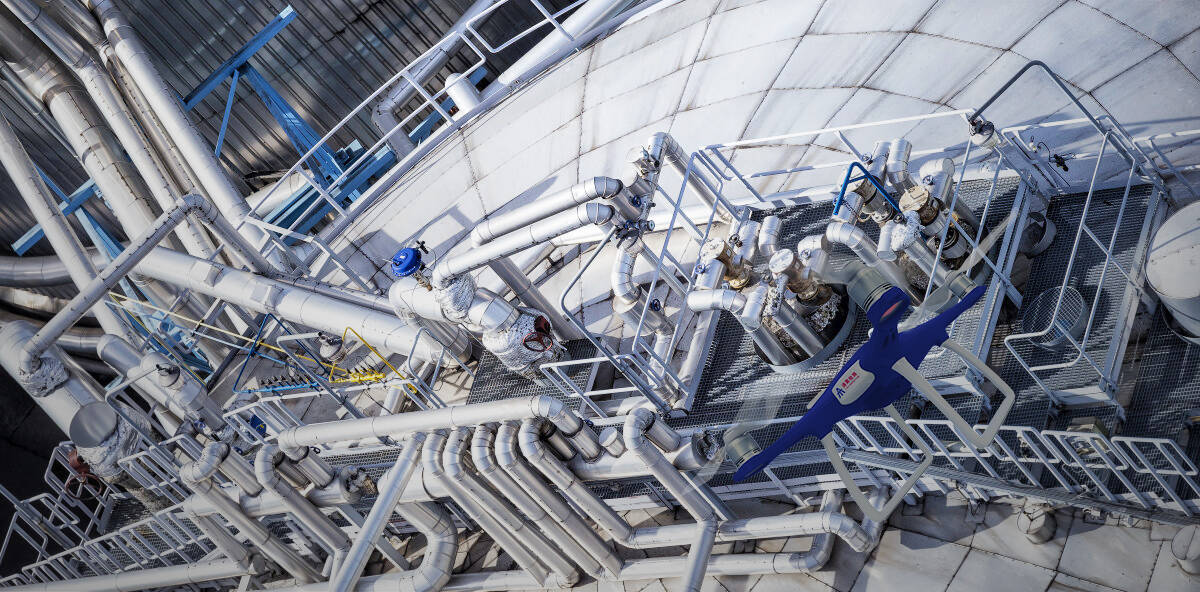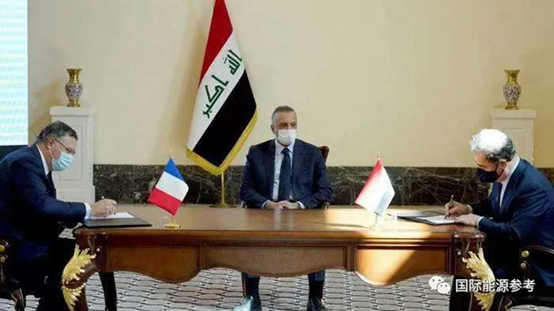










 degree of heat2403
degree of heat2403
The French energy giant Total Energy signed a US$27 billion energy cooperation agreement with the Iraqi government, the Ministry of Electricity and the National Investment Commission. The cooperation involves oil, natural gas and solar energy, and strives to further release the country’s energy resource potential and fundamentally Solving the country’s power shortage and power outage dilemma, while helping Iraq realize the diversification of its energy economy.

Contribute to the improvement of the energy industry structure
Iraqi News Agency reported that under the witness of Iraqi Prime Minister Kadimi, Iraqi Oil Minister Jabbar and Total Energy CEO Pan Yanlei signed a cooperation agreement in Baghdad, the capital of Iraq. The cooperation covers 4 projects with a duration of more than 25 years. Total Energy will provide technology and experience for oil and gas development and solar energy development in Iraq.
Kadimi said: "This is the largest Western investment we have received so far. Although the cooperative development of these projects still faces great challenges, it will help improve the structure of the energy industry." Pan Yanlei pointed out that this is Total Energy. The symbol of returning to Iraq, through more rational use of Iraq’s energy resources, will help it build a sustainable future.
According to the "Wall Street Journal" report, Total Energy will take the lead in investing US$10 billion in initial funding, and some or all of the four projects are expected to be launched before the end of the year.
It is understood that the first project invested US$3 billion, mainly injecting seawater into oil fields to increase oil recovery. In response to the water shortage in Iraq, Total Energy will build a large-scale seawater treatment device without increasing the amount of water drawn. To improve the water injection capacity of the oil fields in southern Iraq.
The second project invests US$2 billion, mainly to build natural gas processing plants in West Qurna 2, Majnoon, Artawi, Tuba and Luhais and other oil fields in southern Iraq. It is expected to produce 300 million cubic feet of natural gas per day. Doubled to 600 million cubic feet. In addition, the project also involves the removal of harmful gases produced by oilfield production activities.
The third project is aimed at Artawi, a large oil field in southern Iraq, and aims to increase its daily output from the current 85,000 barrels to 210,000 barrels. The fourth project is to invest in the construction of a solar power station with an installed capacity of 1 million kilowatts, mainly to provide clean electricity for the Basra region of Iraq. This is the second solar power cooperation agreement signed by Iraq since September, reflecting the country's determination to vigorously develop renewable energy.
Reshaping the petroleum industry
Iraq is OPEC’s second largest oil producer, with an average daily crude oil output of about 3.96 million barrels as of the end of August. In recent years, the country has been attracting foreign and private capital to reshape the oil industry. More than 90% of Iraq’s revenue comes from the oil industry. However, in the context of the energy transition and the response to the climate change crisis, coupled with the severe impact of the new crown pneumonia epidemic on energy demand and international oil prices, the country’s economy has suffered severe damage.
Data from the International Monetary Fund shows that the sharp drop in oil revenues caused Iraq’s GDP to shrink by 11% last year, the unemployment rate continued to deteriorate and poverty further increased. According to data from the Iraqi Ministry of Petroleum, oil exports in August increased from 2.9 million barrels per day in July to 3.054 million barrels per day, and oil export revenue exceeded US$6.5 billion. Obviously, the oil industry is still the key to Iraq’s economic development. "Financial Times" reported that Iraq plans to increase its daily oil production to 8 million barrels by the end of 2027, while increasing local natural gas extraction and productivity to get rid of its dependence on Iranian natural gas imports.
Kareem Abdul-Jabbar revealed that the cost of importing natural gas from Iran is about US$8 per million British thermal units, while the cost of cooperating with Total Energy to produce natural gas locally is about US$6.5 per million British thermal units.
At present, as the situation in Iraq has gradually stabilized, many multinational companies have considered relocating their businesses in this country with abundant oil reserves. Cooperation to promote the development and production of the Rumaila oil field, which produced 1.4 million barrels of oil per day last year.
Maximize the potential of solar power generation
Although Iraq ranks fifth in the world in terms of oil reserves, the country is facing severe power shortages. Reuters recently reported that Iraq’s main power grid suffers several hours of power outages throughout the year, especially in the summer when the temperature is soaring and air conditioning is heavily dependent, and the power shortage is getting worse.
In this context, the Iraqi government is very urgent to strengthen the power industry. However, in the past 10 years, due to lack of funds and technology, the country's infrastructure repair and reconstruction have been very slow. In view of the weak power system and grid facilities, the development of off-grid solar power is undoubtedly more suitable.
According to the Iraqi government’s plan, by 2030, the country’s installed solar capacity will be increased to 10 million kilowatts, and 20% of the country’s electricity will come from solar energy by then. In fact, Iraq’s geographical location is very conducive to the development of solar energy. The country has a tropical desert climate except for the mountainous areas in the northeast. It has abundant solar energy resources and the highest temperature in summer is above 50 degrees Celsius.
The International Energy Agency estimates that Iraq has the potential to have an installed capacity of 21 million kilowatts of solar power by 2030. The Regional Center for Renewable Energy and Energy Efficiency, the Arab Clean Energy Advocacy Organization, predicts that by 2025, Iraq’s renewable energy generation will reach 2.24 million kilowatt-hours.